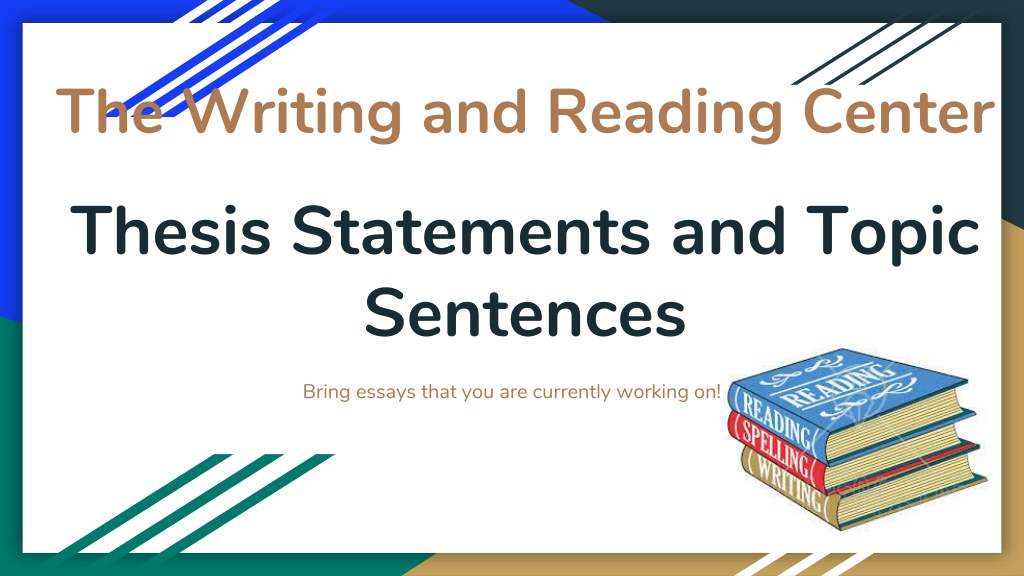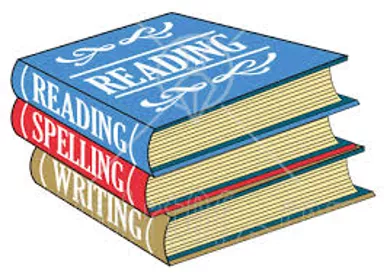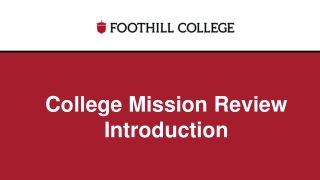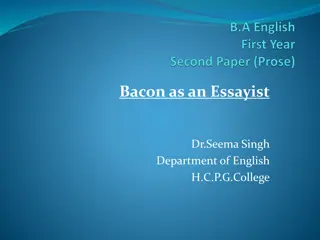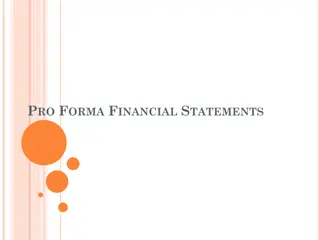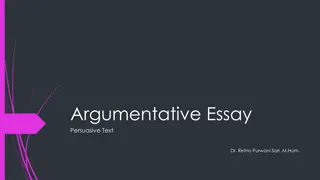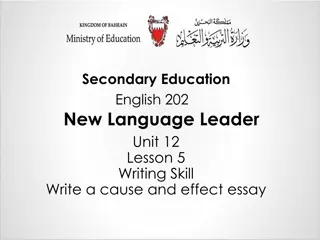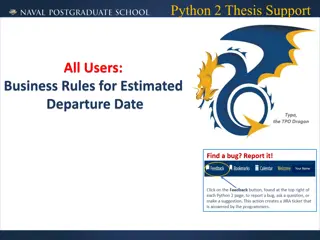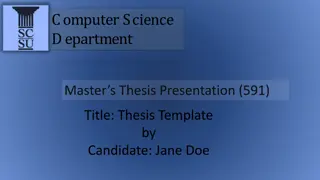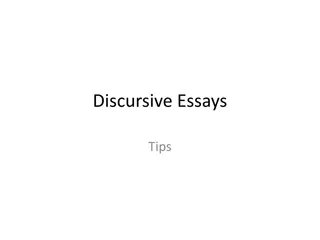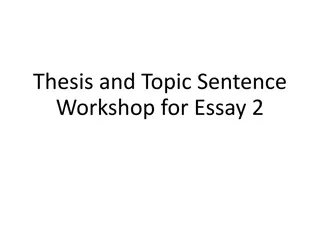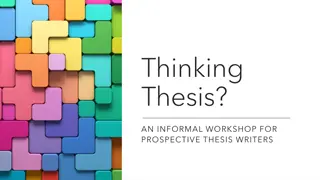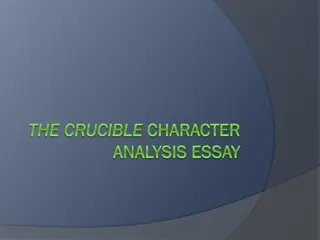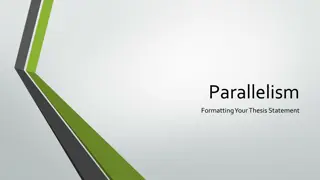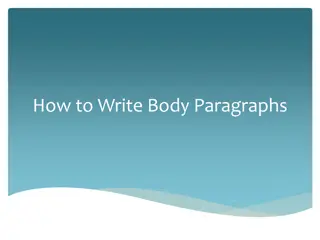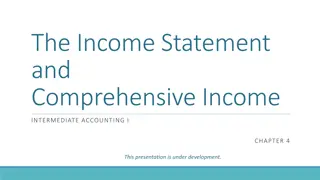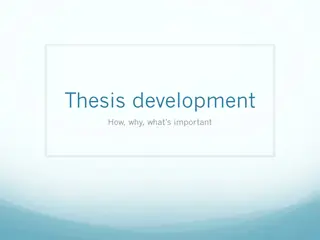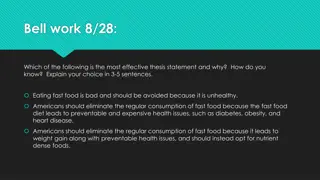Mastering Thesis Statements for Effective Essays
Understand the essence of a thesis statement - the core of your essay. Learn to craft thesis statements based on the type of paper you are writing - analytical, expository, or argumentative. Explore examples and essential questions to refine your thesis effectively.
Download Presentation

Please find below an Image/Link to download the presentation.
The content on the website is provided AS IS for your information and personal use only. It may not be sold, licensed, or shared on other websites without obtaining consent from the author.If you encounter any issues during the download, it is possible that the publisher has removed the file from their server.
You are allowed to download the files provided on this website for personal or commercial use, subject to the condition that they are used lawfully. All files are the property of their respective owners.
The content on the website is provided AS IS for your information and personal use only. It may not be sold, licensed, or shared on other websites without obtaining consent from the author.
E N D
Presentation Transcript
The Writing and Reading Center Thesis Statements and Topic Sentences Bring essays that you are currently working on!
What is a thesis statement? Every paper you write should have a main point, a main idea, or central message. The argument(s) you make in your paper should reflect this main idea. The sentence that captures your position on this main idea is what we call a thesis statement.
Tips for Writing Your Thesis Statement Determine what kind of paper you are writing: 1- An analytical paper breaks down an issue or an idea into its component parts, evaluates the issue or idea, and presents this breakdown and evaluation to the audience. 2- An expository (explanatory) paper explains something to the audience. 3- An argumentative paper makes a claim about a topic and justifies this claim with specific evidence. The claim could be an opinion, a policy proposal, an evaluation, a cause-and-effect statement, or an interpretation. The goal of the argumentative paper is to convince the audience that the claim is true based on the evidence provided. If you are writing a text that does not fall under these three categories (e.g., a narrative), a thesis statement somewhere in the first paragraph could still be helpful to your reader.
Thesis Statement Examples: 1- Example of an analytical thesis statement: An analysis of the college admission process reveals one challenge facing counselors: accepting students with high test scores or students with strong extracurricular backgrounds. The paper should: Explain the analysis of the college admission process Explain the challenge facing admissions counselors
Thesis Statement Examples Continued: 2- Example of an expository (explanatory) thesis statement: The life of the typical college student is characterized by time spent studying, attending class, and socializing with peers. The paper should: Explain how students spend their time studying, attending class, and socializing with peers 3- Example of an argumentative thesis statement: High school graduates should be required to take a year off to pursue community service projects before entering college in order to increase their maturity and global awareness. The paper should: Present an argument and give evidence to support the claim that students should pursue community projects before entering college
Questions to ask When Writing your Thesis Statement 1- Is your thesis statement specific and clear? Your thesis statement should be as clear and specific as possible. Normally you will continue to refine your thesis as you revise your argument(s), so your thesis will evolve and gain definition as you obtain a better sense of where your argument is taking you. 2- Is your thesis statement too general? Your thesis should be focused and limited to what can be accomplished in the specified number of pages. Being specific in your paper will be much more successful than writing about general things that do not say much.
3- Does your thesis include a comment about your position on the issue at hand? The thesis statement should do more than merely announce the topic; it must reveal what position you will take in relation to that topic, how you plan to analyze/evaluate the subject or the issue. In short, instead of merely stating a general fact or resorting to a simplistic pro/con statement, you must decide what it is you have to say. 4- Is your thesis statement original? Avoid generic arguments and formula statements. Keep revising until the thesis reflects your original ideas.
Topic Sentences Every paragraph should include a topic sentence that identifies the main idea of the paragraph. A topic sentence also states the point the writer wishes to make about that subject. Generally, the topic sentence appears at the beginning of the paragraph. It is often the paragraph s very first sentence. A paragraph s topic sentence must be general enough to express the paragraph s overall subject, but it should be specific enough that the reader can understand the paragraph s main subject and point.
Tips for Writing Topic Sentences To choose an appropriate topic sentence that identifies the main idea of the paragraph, read the paragraph and think about its main idea and point. The supporting details in the paragraph (the sentences other than the topic sentence) should develop or explain the topic sentence. Read all the supporting details in the paragraph and think about the ideas they discuss. The topic sentence should not be too general or too specific. When considering the options, look for a topic sentence that is general enough to show the paragraph s main idea instead of just one of its details. The answer should be specific enough that the reader understands the main idea of the paragraph.
Guidelines for Composing Topic Sentences Put your topic sentence in the beginning of your paragraph. Be sure your topic sentence is focused. If restricted, a topic sentence discusses only one central idea. A broad or unrestricted topic sentence leads to a shaky, incomplete paragraph for two reasons: The paragraph should contain enough information to support the topic sentence. A broad topic sentence will not summarize or forecast specific information in the paragraph. Ex. One similarity between current and previous methods of communication relates to the form of communication. In the past, both written forms such as letters were frequently used, in addition to oral forms such as telephone calls. Similarly, people nowadays use both of these forms. Just as in the past, written forms of communication are prevalent, for example via email and text messaging. In addition, oral forms are still used, including the telephone, mobile phone, and voice messages via instant messaging services.
Sample Thesis Statement: The poem Seven Whole Days relays the story of heartache through the use of imagery and repetition. Sample Topic Sentences: In Seven Whole Days imagery is one of the main devices used in the poem. Repetition is used throughout the poem Seven Whole Days to emphasize the speaker s heartache.
Topic Sentence Exercises (Answer Sheet): 1- Devasmita and Shahrezad both rebel against their fathers. Or: Devasmita and Shahrezad both utilize rebellion in pursuit of their own causes. 2- In the stories Pygmalion and the Statue and Daphne and Phoebes the themes of objectification of women and virginity are tackled. 3- In The Beginning of the Song that Diverts the Heart, imagery is used to covey the girl s and boy s varying perspectives on love and its perceived challenges. 4- In The Beginning of the Song that Diverts the Heart, the speakers word choices convey their romantic and pragmatic views on love.
